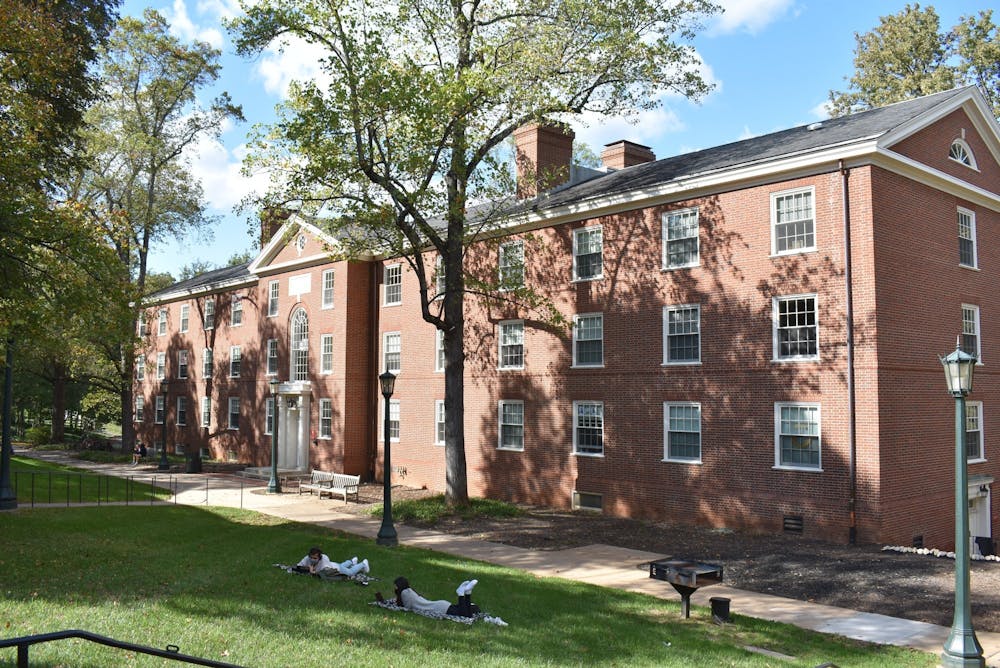No two college students have the same experience. Some spend most of their time studying inside, while others soak up the sun and toss around a ball whenever they can. However, since March 2020, college experiences have been limited due to COVID-19. Fourth years had to adjust their graduations and teachers had to get used to Zoom. One of the academic groups that got the shortest end of the stick was first years. Not only did traditional graduation commencements and the last part of senior year have to be altered, but their first year in college was left in doubt. They sat in anticipation and waited for the University to decide whether or not to open in-person activities, and even still, certain precautions had to be taken in an effort to limit exposure to COVID-19.
This is not to say that these measures should not have been taken — the safety and health of society undeniably exceeds the rite of passage known as the college experience. However, there is a question of how the effect will develop over time. While annual ceremonies, celebrations or work have just been canceled until next year or the year after, an experience cannot be postponed. College, however, can be postponed with gap years and breaks, but many of the 3,785 students in the Class of 2024 chose otherwise. No one wants to postpone something as impactful as their college experience and education, and the cons of taking years off often greatly outweigh the potential benefits. So those who chose to enroll last year despite the pandemic are at a disadvantage. All enrollment celebrations and orientation days such as Days on the Lawn were either canceled or pushed online, depriving many the opportunity to see the University before placing their deposits.
With many buildings shuttered, sports curtailed and most classes offered almost exclusively through Zoom, the Class of 2024 has collectively experienced only a few of the many exciting and even traditional aspects of college. Despite these shortcomings, the University continues to encourage first-year students to become involved in different activities — even if they are all on Zoom — and find their place here. Moreover, the University has adjusted its academic policies to meet the challenges of COVID-19, providing all students with an equitable chance at an education through the credit/no credit grading option. However, these accommodations still do not take into account the largest disadvantage that the first years of this past year face — adjusting to college now and subsequently how it will be after the pandemic.
With the limitations set in place by the administration beginning to be relaxed, many have not yet had the opportunity to explore Grounds, make connections or even experience lectures in person. Come the fall semester, these students will have to readjust. While everyone else adjusted to Zoom and social distancing, first-year students had to start their University that way. In effect, this is the only way that they have experienced college and given all of the negative effects of learning online, current rising second years have no recollection of or reference to a traditional college experience.
Solutions to this disconnect of college life felt by the Class of 2024 can come in several forms. Some of the programs that cater specifically to rising second years such as HoosConnected and First Gen Mentoring Network can be mimicked for rising second years to ensure that they do not miss any more social opportunities. The key to solving this problem is to communicate with those affected. Surveys can be conducted by the University or individual student-led organizations in order to better understand how the Class of 2024 has been disadvantaged. Special programs and events can be orchestrated in order to welcome back students with the fairs and events that they had to miss or sit through on Zoom. As stated before, an experience cannot be generalized or generated, but with special attention to rising second years in their second year, the impact of that lost experience can be curtailed.
We have had no control over the trajectory of the pandemic and, therefore, no foresight toward how drastically it would change college life. COVID-19 undoubtedly changed the University’s first-year experience, but on the grand scale of things, that only means that it makes rising second years more unique and more prepared. I doubt anyone is going to ever remember the ins and outs of Zoom quite like a current University student, but even still, I wonder if the deeply rooted effects of the pandemic on education will negatively impact students going forward.
Shaleah Tolliver is a Viewpoint Writer for The Cavalier Daily. She can be reached at opinion@cavalierdaily.com.
The opinions expressed in this column are not necessarily those of The Cavalier Daily. Columns represent the views of the authors alone.







